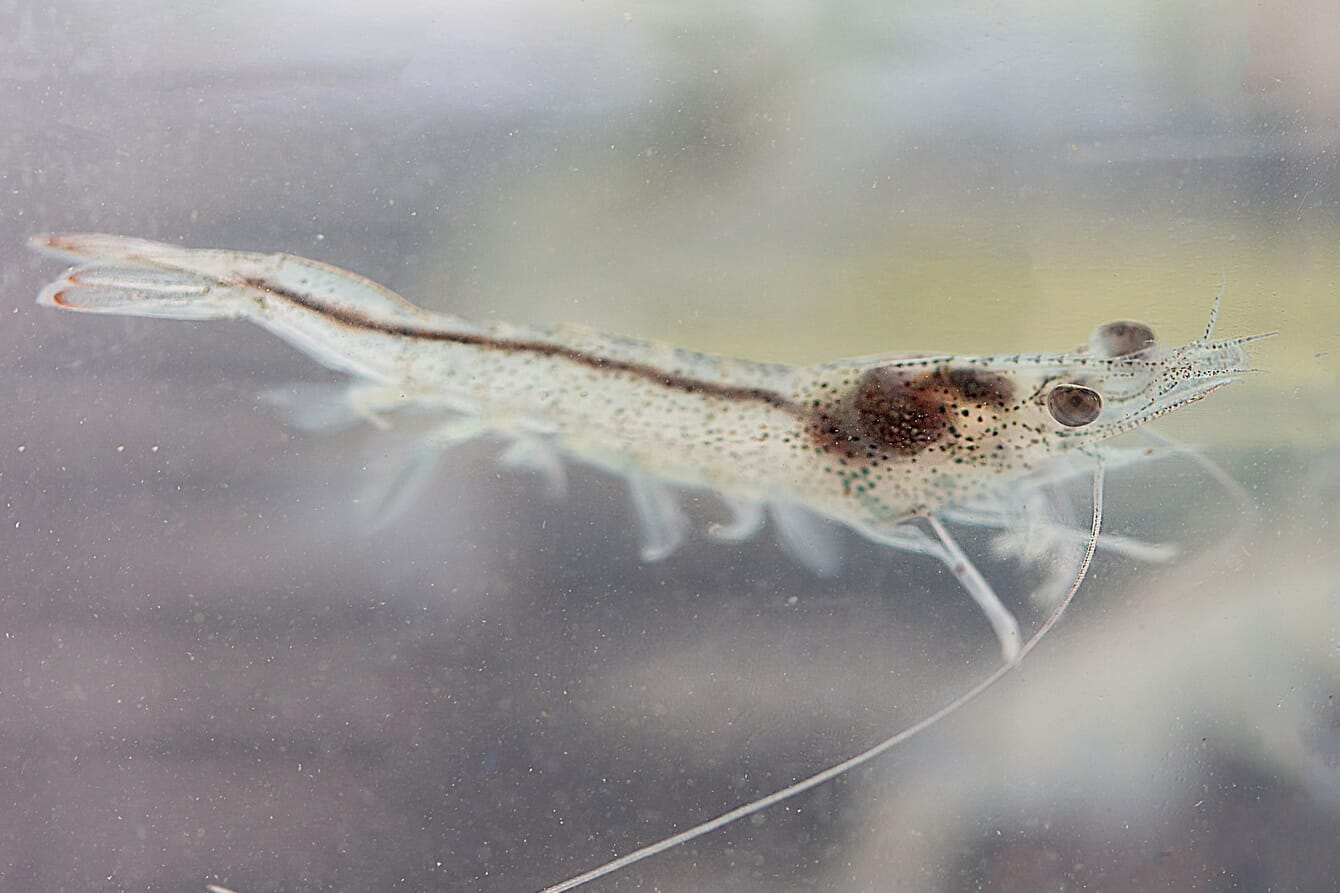
The scientists evaluated the digestibility of crude protein and essential amino acids in ingredients for Pacific whiteleg shrimp diets, including soy protein concentrate, corn gluten meal, poultry byproduct meal, meat and bone meal, hydrolyzed feather meal, spray-dried blood meal, tilapia byproduct meal, Brazilian marine fish meal, salmon byproduct meal and krill meal. The was latter provided by Aker BioMarine.
The feeding trial ran over three experimental stages, each lasting up to 30 days. The test diets included a range of plant and terrestrial animal byproduct ingredients, as well as aquatic ingredients, such as marine fish meal, salmon byproduct meal and krill meal. Following the experiment, the scientists concluded that the aquatic ingredients yielded higher crude protein and essential amino acid digestibility, making them the more effective additives to shrimp feeds.
“Protein ingredients can be costly for shrimp farmers, and the shared goal is to use ingredients that are as effective as possible, a motivation that prompted this new study,” said Lena Burri, R&D director at Aker BioMarine, in a press release. “While we did not participate in this experiment from a research perspective, we supplied the krill meal to the team, and it was shown to be the highest performer among all ingredients tested.”
The study was conducted in the State of Ceará, with juvenile whiteleg shrimp weighing six to eight grams each. Each test group was fed a specific diet to measure the effect of key protein and amino acid ingredients.
Key findings
- Apparent digestibility for crude protein for most aquatic proteins was high compared to plant and terrestrial animal byproducts.
- Krill meal exhibited the highest apparent crude protein digestibility (84.3%) and apparent essential amino acid digestibility (86.5%) among all test ingredients.
- The shrimp fed the krill meal diet had the best growth performance with the highest weekly growth and the lowest feed conversion ratio.
“This study has shown that protein and amino acid digestibility of raw materials have a greater importance than their crude values and should be carefully considered during ingredient selection and feed formulation. We see that aquatic protein sources - and krill meal specifically - have proven to increase feed efficiency and growth performance of juvenile shrimp, which will likely have direct implications to water quality and economic performance of shrimp farms,” said Dr Alberto JP Nunes from Instituto de Ciências do Mar (Labomar).
Further information
The published study is titled “Apparent digestibility of protein and essential amino acids from commonly used feed ingredients in Brazil for juvenile shrimp Litopenaeus vannemei”. It is available in full here.


